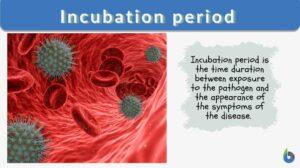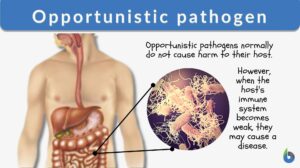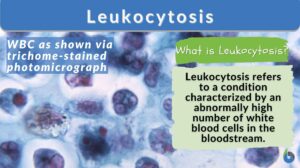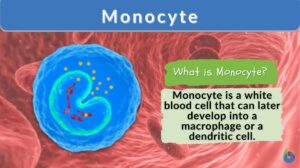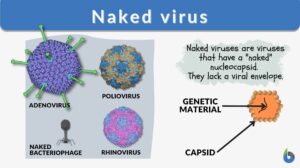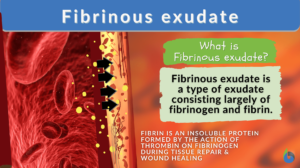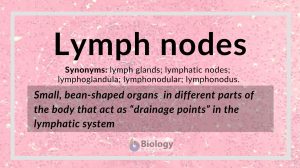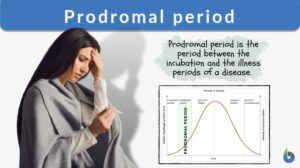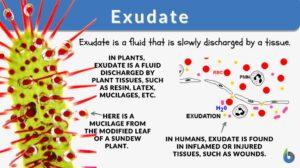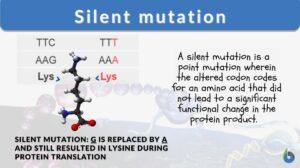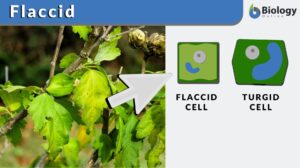Search Results for: infection
Incubation period
Incubation Period Definition The incubation period is the time duration between exposure to the pathogen and the appearance... Read More
Subclinical infection
subclinical infection (Science: epidemiology) An infection in which symptoms are sufficiently mild or inapparent to escape... Read More
Opportunistic pathogen
Opportunistic Pathogen Definition How do we define opportunistic pathogen? The opportunistic pathogen is an infectious... Read More
Leukocytosis
What Is Leukocytosis? Leukocytosis is a condition wherein the number of White Blood Cells (WBCs) is increased above the... Read More
Naked virus
Viruses are infectious entities with size ranges between 20 to 400 nanometers. The mammoth-sized virus would be about the... Read More
Fibrinous exudate
What Is Fibrinous Exudate? Fibrinous exudate is a type of exudate (inflammatory fluid) that forms at the site of tissue... Read More
Lymph nodes
Lymph nodes definition Lymph nodes are small, bean-shaped organs located in different parts of the body and act as... Read More
Integumentary system
Integumentary System Definition The integumentary system is the outermost layer of the body. The animal body, in... Read More
Prodromal period
There are five stages (or phases) of a disease. (Hattis, 2020). These stages are (1) Incubation period, (2) Prodromal... Read More
Reservoir host
Reservoir Host Definition A reservoir host is a host that harbors the pathogen and serves as a source of the infective... Read More
Eponychium
The eponychium is the layer present underneath the proximal nail fold that produces cuticles on the nail.... Read More
Silent mutation
A mutation is a change in the nucleotide sequence of a gene or a chromosome. When there is only one nucleotide involved, it... Read More
Streptococcus
Definition noun, plural: streptococci (1) A genus of bacteria characterized by being coccus, Gram-positive, and occurring in... Read More
Suppurative inflammation
Definition noun A type of inflammation accompanied by the discharge of purulent exudate (pus) Supplement Inflammation is a... Read More
Infective stage
Definition noun (parasitology) The stage in the life cycle of an endoparasite wherein it can initiate infection to its... Read More
Susceptible
Resistance, vulnerability, sensitivity, tolerance, and susceptibility are some highly important terminologies across the... Read More
Dhobie itch
Definition Fungal infection causing intense itching and inflammation in the groin region. Supplement This type of fungal... Read More
Homeostasis
Homeostasis is the tendency not to stray from the range of favorable or ideal internal conditions. Such conditions must be... Read More
Natural immunity
natural immunity --> innate immunity This includes local barriers to infection such as skin, stomach acid, mucous, the... Read More
Regulation of Organic Metabolism, Growth and Energy Balance
Organic Metabolism Events of Absorptive and Post-absorptive States. The absorptive state is the period during which... Read More
Biosecurity and Biocontrol
By: Maria Victoria Gonzaga In the previous lesson, we learned about the importance of modern science... Read More
The consequences of antibiotic use in horticulture
Leading articles Frederick R. Falkiner* Department of Clinical Microbiology, Trinity College, Dublin; Central Pathology... Read More
Candida albicans
Definition noun A yeast-like fungus that abounds in nature and part of the gut flora. However, it is an opportunistic... Read More
Ascaris lumbricoides
Definition noun A parasitic roundworm of humans, generally dwelling in the intestines of human host Supplement Ascaris... Read More
Endoplasmic reticulum
Endoplasmic Reticulum Definition The endoplasmic reticulum is a membrane-bound organelle in cells of eukaryotic cells... Read More
Phagocytosis
Phagocytosis Definition Phagocytosis is a basic physiological cellular process wherein a cell ingests a solid particle... Read More

